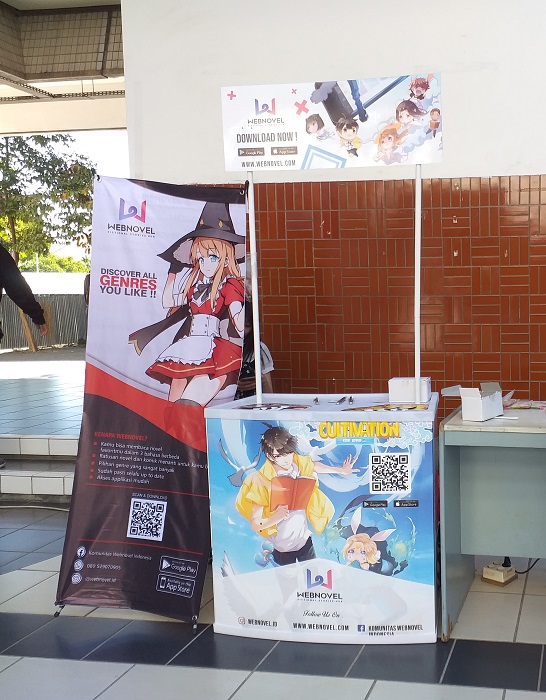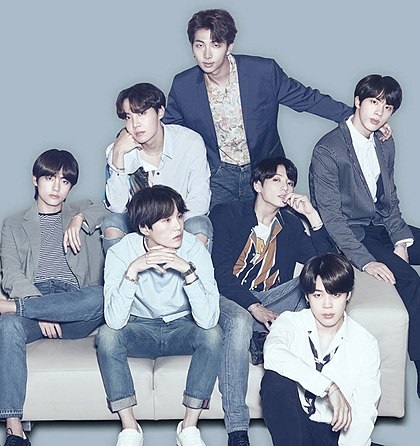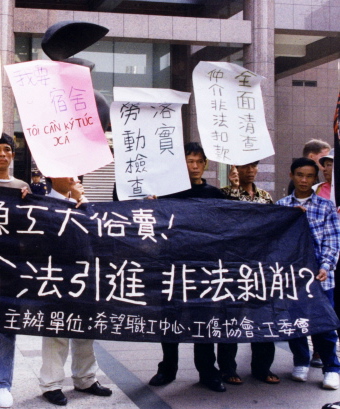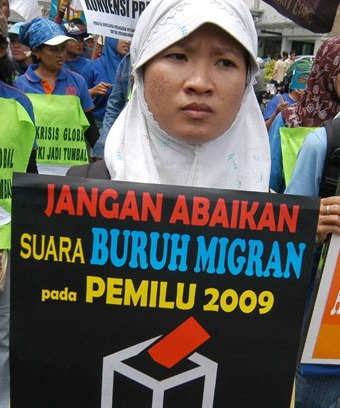Korean idols and Japanese boys’ love comics are finding new places for queer expression in Indonesia
Versi Bh. Indonesia
Teguh Wijaya Mulya
Japanese and Korean pop culture has taken Indonesia by storm. Every year, hundreds of thousands of fans flood anime conventions, K-pop concerts, cosplay (dressing up as a character) competitions and other related events. Even President Jokowi claimed himself to be a K-pop fan when interviewed by Korean media, proudly displaying a photo of himself and his daughter at a K-pop concert.
K-pop, for those who don’t know, is shorthand for Korean pop music. Along with anime (Japanese cartoon films) and manga (Japanese comics) it is now popular right around the globe, and these terms are included in the Cambridge English dictionary. Fans all over the world have not only read, listened to and watched these forms of popular culture, but have also written and drawn about them, formed their own fan groups and dressed up as their favourite characters.
Engagement with such forms of pop culture is endowed with possibilities for an encounter with diverse practices and representations of gender and sexuality. At anime and manga conventions, for instance, there are sections designated for local fans to sell their own products or artworks – commonly known as artist alley or the fan market. In Indonesia, these sections are dominated by locally-made yaoi, a form of manga which depicts romantic stories between men. Known outside of Japan as boys’ love comics, yaoi often suggests a gay audience but in fact, yaoi writers, illustrators and readers are predominantly heterosexual girls and women.
Another popular form of engagement is cosplay, which often includes cross-play, or dressing up as another gender. Aphin, an Indonesian female cosplayer with almost 35,000 followers on Instagram, for example, often dresses up as a male character and has received praise and compliments from her followers. A degree of crossdressing practice is also acceptable in the K-pop world where boy-bands sometimes perform songs made famous by girl-bands, and they perform wearing the same costumes as the girls. This also happens in the reverse with girl-bands dressing as boys and performing boy-band songs.
Another common practice among K-pop fans is Twitter role-play, where a fan creates and runs a fake account for their idol. An Indonesian role-player account, like @surzy or @rvlvt_yeri, can have more than 10,000 followers. These fans either pretend to be the idol, or role-play an imaginary self, using the idol’s identity. Quite often, role-players enjoy online intimate and sexual relationships with each other through their fake accounts/identities without necessarily knowing the real gender of their partner behind the other account. In an Indonesian context where public discourse on youth sexuality is dominated by ideas like modesty, heteronormativity and abstinence, the acceptance of such practices – crossdressing, gay comics, online role-playing sex – among the fans is indeed queer.

These queer spaces sit in glaring contrast with reporting in national and local media around gender and sexuality in recent years. Religious and state authorities in various parts of Indonesia have enforced their (heteronormative, abstinence-based) sexual morality through public statements and physical violence. This enforcement has included police arrest and persecution of waria (transgender women) in Aceh, police crackdown on gay gatherings in Surabaya, the blaming of LGBT people for disasters, investigation and the arrest of celebrity sex workers, and the recommendation of the death penalty for lesbians and gay men by the Council of Muslim Leaders (MUI). In the run up to the 2019 national election, right-leaning politicians capitalised on LGBT issues and homophobic sentiment to advance their political agendas, while centre-left parties stayed stay silent on these issues in order to avoid any backlash. So against this social-sexual-political-cultural backdrop, how does Japanese and Korean pop culture offer an alternative discourse for Indonesian youth around gender and sexuality?
Sexuality and pop culture
Speaking with some of my students who identify as fans, I find that to some extent their engagement with Korean and Japanese pop culture has formed and informed their ways of understanding gender and sexuality. This is particularly true in relation to heteronormativity, abstinence, innocence and traditional gender norms. Indah, for example, learned about sex from explicit content in boys’ love media. She said: ‘Those yaoi ruined my innocence, haha. I was surprised when I first read those scenes, but because I was curious, I kept reading!’ Another fan, Rina, said that in Twitter role-play, indicating as relationship preference BxB (boy x boy) or GxG (girl x girl) in the account bio is common and completely acceptable for her.
Regarding gender norms, the ‘softer’ versions of masculinity embodied by male Korean idols, such as displaying oneself crying in front of the camera or expressing aegyo (cute affection), has become the new ideal for these fans. They are attracted to and emulate this femininised masculinity whilst rejecting more traditional, hegemonic versions of tough, unemotional masculinity. Some of these female fans also actively wrote boys’ love stories – demonstrating a form of female sexual agency in which women, instead of men, are the ones who imagine, create, produce and enjoy sexual material. And in these scripts, it is boys, not girls, who are the object of desire and vulnerability. It can be seen that queer bending of gender and sexual norms does occur in this world of Indonesian fandom.

However, hetero-patriarchal discourses are quick to re-establish themselves in off-line life in Indonesia, even when placed within these ostensibly online queer situations. For instance, the queer enactments discussed above are often presented as confining those diverse gender and sexual practices to just the realm of fantasy or entertainment. Indeed, some fans gave a long pause when I asked them what if all the gender-bending queerness in this pop culture, that they see performed by stars in Japan or South Korea, is imitated by a friend or family member in Indonesia. For them, such a thing is either unimaginable or laughable. ‘It makes sense for a male Korean idol to put make-up on for a performance, but if it’s my male friend here… (laugh)!’, explained Ayu, a K-pop and yaoi fan.
Similarly, many fans accept same-sex sexuality only in the fictional world. As Ayu said: ‘Many fujoshi (yaoi fans) are actually homophobic. A bromance is only for entertainment; in real life, it’s a different story.’ Statistically speaking, among innumerable contemporary Korean idols, openly LGBT idols are exceptionally rare – some examples include Harisu and Choi Han Bit (a transgender women) and Holland (gay). Frequent cross-dressing acts by a male idol, such as Super Junior’s Heechul, are considered to be a cute performance which does not necessarily put everyday heteronormativity into question. By confining queerness to the realms of entertainment or fantasy, the possibility of subverting traditional gender and sexual norms in ‘real life’ is severely impeded and thus unlikely in an Indonesian context.
Nevertheless, in this increasingly post-modern world, the binary of ‘real’ and ‘virtual’ or ‘fantasy’ has become much more unstable and it is in this instability that new possibilities lie. Rina, an Indonesian role-player and K-pop fan, believes
‘the boundary is very thin. The time we spend in virtual world is actually “real” time. The feelings we have for our idols are “real” feelings. The intimate relationships we built through the role-play world is “real” human-to-human connection. Break-ups (in the role-play world) can be truly sad, you know’.
Complete separation between real and virtual might not be possible – there is always hope that queerness may permeate conservative morality, and that gender-bending may disrupt the patriarchy in Indonesia.
Teguh Wijaya Mulya (teguh@staff.ubaya.ac.id) is a lecturer in the Faculty of Psychology at the University of Surabaya, Indonesia. He says thank you to the fans who have enthusiastically shared their stories during the writing of this piece.















